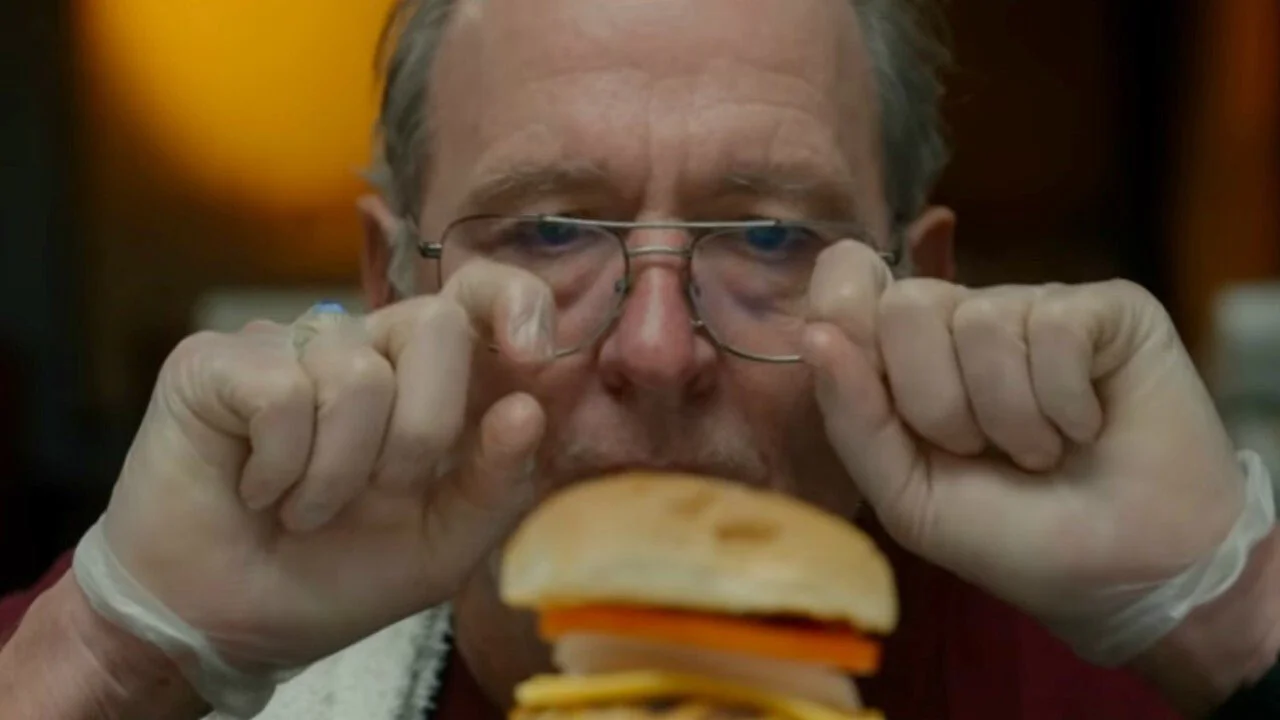The Last Shift: Tone-Deaf ‘Comedy’ Plays to Stereotypes, Misses Chance for Insight
By Thom Ernst
Rating: C
There is an adage that says actors are only as good as the scripts they’re given. I’m not convinced that’s true. Have there not been occasions where good actors lift mediocre material to loftier heights? I think of Jennifer Aniston in Cake, Gary Oldman in Darkest Hour, or Rami Malek in Bohemian Rhapsody. (Actually, not Malek, but who am I to question the Academy’s choice for Best Actor?)
I now add to the list Richard Jenkins in The Last Shift. Jenkins’ performance is the reason to see The Last Shift. But, not even a stellar performance from Jenkins can rescue The Last Shift entirely from its underdeveloped premise and an earnest need to be appreciated.
Jenkins plays Stanley (is there a better name for the working class American?), a man whose biggest flaw is his commitment to the mundane. For 38 years, Stanley has been a steadfast employee at a second-rate burger joint named Oscar’s. Stanley takes inordinate pride in his work, fashioning burgers to a perfect height, balancing the night till to the smallest penny, and adhering to customers every whim.
Jenkins embodies Stanley with the emotional and physical attributes befitting his character, from his sheepish dedication to his employer to his self-conscious limbering stance. But where is Jenkins to go with a character so thoroughly satisfied being where he is?
Thankfully, The Last Shift is a two-handed character study of generational disparities, so there is hope for a redemptive arc when Jevon (Shane Paul McGhie) shows up to work. Jevon would rather not work, but parole requirements say he must, and then there is the needling responsibility of a girlfriend and their infant son.
Director Andrew Cohn seems oblivious to the inherent problems of a black character who’s not only fresh out of prison, but a deadbeat dad with little prospects and no ambition. But if Cohn lacks interest in subverting stereotypes, he is keen to subvert expectations by pitching Jevon and Stanley as opposites who are rarely in conflict.
Their most significant divide is that Stanley finds nothing more rewarding than having devoted his life to one employer while Jevon is not interested in the prospect of 38 years working the night shift at Oscar’s. Without the benefit of conflict, the pair are left to prattle through their litany of failures and missed opportunities with nary a redemptive moment, aside from dark revelation that, once revealed, falls with a disappointing thud.
There are attempts to address weightier subjects, but when the men stoop to arguing about race and white privilege, it amounts to little more than entry-level beefs that offer no insight and even less drama.
The Last Shift is billed as a comedy, but whatever humour the film has is imbedded in Stanley’s conviction that he has conquered the American dream. But for all its weaknesses—Jenkin’s performance aside— the movie does meander towards a satisfying ending worthy of its independent producers, Albert Berger (Little Miss Sunshine) and Alexander Payne (Nebraska).
The Last Shift. Directed by Andrew Cohn. Starring Richard Jenkins, Shane Paul McGhie and Ed O’Neil. Opens in select theatres September 25.


